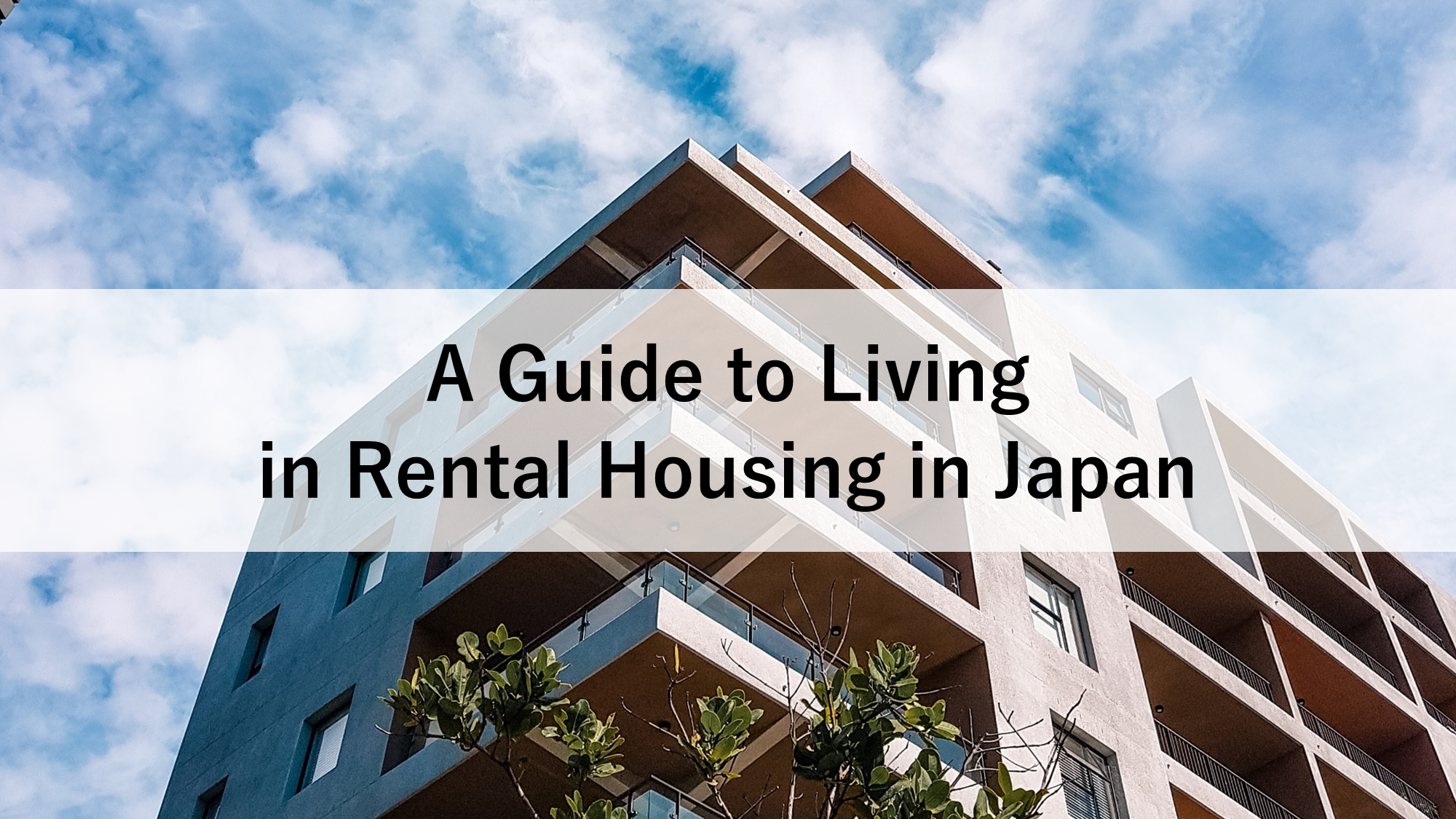To be polite, it is always better to know about the customs of the place you decide to live in.
In Japan, there are several that you should know of.
To give you a general idea, this article will briefly inform you on these rules.
If you are
- going to start living in Japan soon
- living in Japan and finding the rules there confusing
this article is for you!
The eight major things you should know
The eight major things you should know before you start living in your rental housing in Japan are rules on, taking out trash, using the kitchen, being quiet, using the bathroom, using shared spaces, parking, pet policies, and making holes on walls.
- Taking out trash
- segregating trash
It is important to separate certain types of trash from others, such as plastic and raw garbage. The idea behind this is to be more sustainable. Rules on how to divide your trash depends on the city you live in. For each type of trash, there are different trash bags you should use. Those trash bags also differ from city to city so make sure to buy some at a store in the city you live in.
- When to take out your trash
It is customary in most rental houses in Japan to have specific times and days of the week for each type of trash you take out depending on which housing you live in. However, there are some apartments that allow you to take the trash out to a certain spot in that building 24 hours a day, any day of the week. You should ask your landlord or real estate agent about it when you move in.
- Trash you usually can’t take out where you live
There is some trash that you just simply cannot throw out at the designated trash area of your building and you may need to take it to a special place. Some things you should not throw out are big items that don’t fit in the usual trash bag, relatively large electronic devices and cardboard boxes. If there ever comes a time that you have trouble figuring out where to throw away certain items, you should look it up on the internet or ask local authorities responsible. There is usually a thorough page describing where you should take them, as a lot of Japanese don’t know them either! Note that cities usually do not collect large electronic devices such as refrigerators or air conditioners. You will need to contact specific stores and pay money to get rid of them at stores.
- segregating trash
- Using the kitchen
- Do not flush anything solid down the drain
To keep your drain from getting blocked, do not let anything solid go down the drain. Your drain should have a net-like filter to keep solid substances from going down the drain.
- Do not pour oil down the drain
Oil pollutes the ocean/rivers and it can also clog your drainage pipes. Instead of pouring it down the drain, you can:- Use paper towels or newspapers
Use paper towels or newspapers to soak up the oil and throw it away as combustible trash. Make sure your used oil is not hot anymore, so that your paper towel does not catch fire. This is for when you did not use a lot of oil. - Using an empty milk carton
Prepare an empty milk carton (which is made of paper in japan), stuff it with paper towels to make sure there is something to soak up the oil, pour oil inside, tightly close the lid, using duct tape and whatnot, and throw it away as combustible trash. This is for when you use a lot of oil. - Using coagulants
It sounds difficult but actually isn’t. The only thing you need to do is to add coagulant to your oil while it is still hot. After an hour, the oil will solidify, and you can throw it away as combustible trash. You can also use potato starch although the oil will not solidify but be more like jello. This is also for when you use a lot of oil.
- Use paper towels or newspapers
- Do not flush anything solid down the drain
- Being Quiet
In apartments, the noise you make can easily be overheard by your neighbors. In Japan, it is considered impolite to make noise when it can be avoided. For example, you should not use washing machines or the vacuum cleaner early in the morning or late at night as it can disturb your neighbor’s sleep. Musical instruments, your voice, televisions and radios are also some things you should be careful of. If you are too loud, you may be asked to evacuate. - Using the bathroom
Be careful not to flush your hair down the drain, or flush anything other than toilet paper down the toilet. If they overflow and you flood the room below you, you will have to pay for the repair work of that room as well. - Using shared spaces
Shared spaces such as hallways, elevators, stairs and such should be kept clear of personal things. This is for safety reasons. In times of emergencies such as earthquakes (which are very common in Japan), people will use this space to evacuate. Anything lying around may be dangerous. - Parking
Bicycles, you should park at the area designated for bicycle parking at your apartment. As for cars, oftentimes, there will be a specific designated parking spot that you have to pay money for. Get yourself a spot or if your apartment does not have any parking space, find monthly paid parking spaces nearby. You should avoid parking on the side of the road as it is illegal to do so. - Pet policies
Most apartments in Japan do not allow pets. This is to keep rooms clean and prevent smells from settling. If you would like to keep pets in your apartment, there are some rooms that allow pets, so you should be careful to ask real estate agencies when looking for a room. - Do not make holes in walls
A lot of people like to do DIY at new homes like hanging pictures on the walls to make them more comfortable. When doing so, you should be careful to not poke holes in walls. Else, you will have to pay for repairs. There are alternatives, products that help you hang things on the wall without making any holes so you should look for them if you need to!
Closing
Living in a new country can be exciting but change can be exhausting. If you’ve read this far, you have learned the basic things you need to know to be a polite neighbor in Japan. If you are unsure of anything, I suggest you ask your local authority or look it up online before you put it into action. Hope you have a great time in Japan, and best of luck!
If you are thinking of moving but have not yet decided on a new place to live:
SUGEE Housing, operated by SUGEE, is a real estate agent service specializing with foreign nationals. We have English-speaking consultants ready to assist you in your apartment hunting. If you are looking for a new place to live in Japan, please feel free to contact us.
Talk to a SUGEE consultant:
References
- ”A guide to rental housing and rules for living in Japan”, International Division, Department of Public Services,Saitama Prefectural Government, retrieved 2022/4/10 from http://www.sasn.jp/pdf/hi_english.pdf
- ”油は水道に流しても大丈夫?水道に捨てる問題や適切な処理方法とは”, retrieved 2022/4/10 from https://aichi-suido-pro.com/column/8808
- ”賃貸物件の壁に穴をあけても大丈夫? 穴の大きさ別に解説…目立たない穴のあけ方も紹介”, LIFULL HOME’S編集部, retrieved 2022/4/10 from https://www.homes.co.jp/cont/rent/rent_00543/


